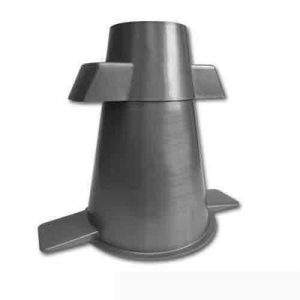Description
Concrete Bulk Resistivity
RCON2™ is a non-destructive device for measuring the electrical resistivity of concrete specimens in the laboratory without any additional sample preparation requirements. This measurement can easily be made on the same concrete samples that are currently used for the compressive strength testing of concrete.
RCON2™ is fast (measurement time is less than 5 seconds), accurate (utilizing variable frequency method) and flexible (the measurement can be taken with different settings for verification). RCON2™ also allows for continuous measurement of electrical resistivity over time, which can be used to monitor several other parameters such as cracking, moisture transfer and time of setting in concrete specimens.
RCON2™ is a unique device for investigating the micro-structural properties of concrete including:
Diffusion of chloride in concrete
Rebar corrosion in concrete
Setting time of fresh concrete
Moisture transfer in concrete
Curing of concrete
Cathodic protection design
Features
Fast (<5 Second) Accurate (±2%) AC measurement (Galvanostatic) Wide range of measurement frequencies (1Hz to 30kHz) Phase detection (0-180 degree) Stand alone operation Continuous measurement User-friendly PC software Flexible sample holders Customizable setup USB connection to computer More Information RCON2™ provides a reliable method that utilizes electrical resistivity measurement for the quality control of concrete based on the required durability performance. This measurement can easily be made on the same concrete samples that are currently used for the compressive strength testing of concrete. RCON2™ employs an AC impedance technique for the accurate and fast readings that can be continuously obtained using its customizable and user-friendly operating software for various concrete materials. The electrical resistivity of concrete can simply be related to their pore network characteristics such as pore size and their connectivity, moisture content in the pores and pore solution chemistry. In concrete materials, the electrical resistivity has been well correlated with important durability parameters such as permeability and diffusivity. In addition, this non-destructive test can easily be conducted on fresh or hardened concrete specimens at different ages or various stages of hydration in order to study workability, setting and durability performance of concrete. The electrical resistivity method has also been applied to investigate corrosion of rebar in concrete, creep, aggregate segregation and freeze and thaw of concrete since they affect the pore network properties. The concrete electrical resistivity techniques is also a suitable replacement for the Rapid Chloride Permeability Test of concrete (as per ASTM C1202) since there is a strong correlation between the electrical resistivity and durability performance of concrete.



